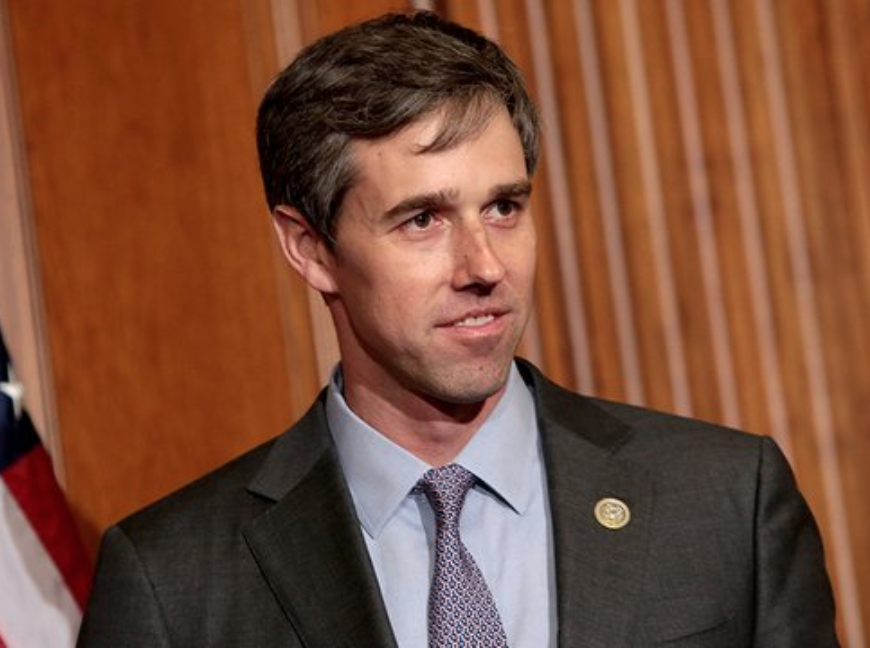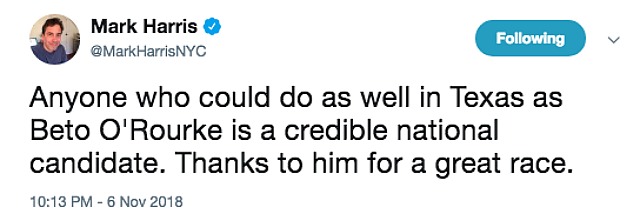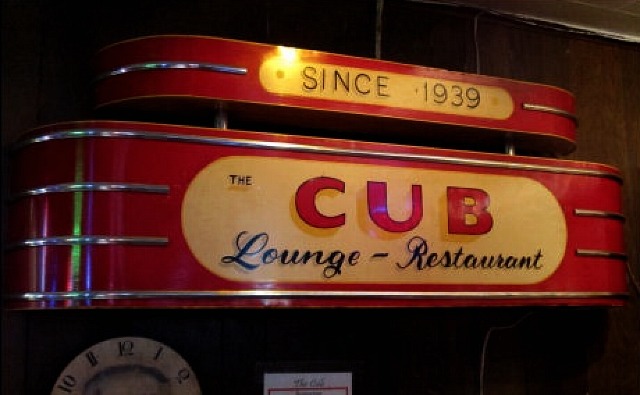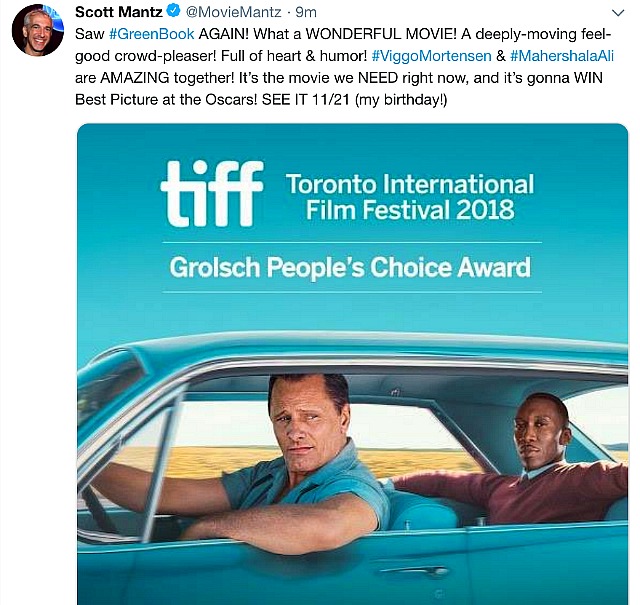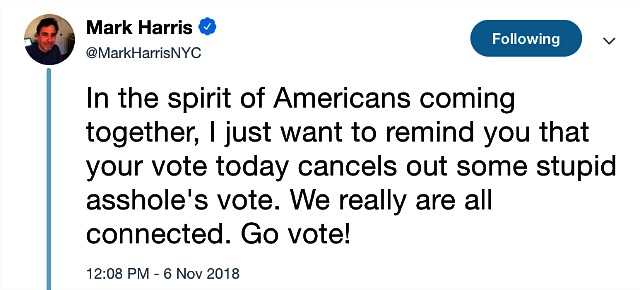Beto O’Rourke vs. Ted Cruz “was political nitroglycerin from the minute this campaign started,” said Ted Delisi, a Republican political consultant in Austin. “Beto couldn’t have run this race against John Cornyn. He couldn’t have run this race against Greg Abbott. This race had to be run against Ted Cruz, and it had to be run this year. This was a once-every-20-years opportunity.”
Precisely the same dynamic awaits in ’19 and ’20 when Beto runs against Donald Trump for the Presidency, and wins. He’s the only guy with that vaguely Kennedy-esque quality, an Irishman with the right, scrappy stuff. A principled guy who can stand up to the beast. Seasoned, passionate. A charismatic, whoop-ass campaigner.
MSNBC’s Chris Matthews mentioned Beto vs. Trump last night. It’s on a lot of people’s minds, trust me. Young enough to engage younger voters but not too young. Played in a band, knows how to skate-board. The perfect opposite of Bloated Orange Cheeto.
HE commenter “East Side Guy” wrote that Beto “certainly seems like a good guy, but I don’t see how he wins the presidency two years after losing the Senate. VP, maybe.”
Will you get this through your head? Barely losing a Senate race in a stubbornly deep-red state like Texas (no Democrat elected to the Senate since ’88) is not a reputation compromiser. Beto ran an inspirational, great-guns campaign that gained national attention and turned people on in all 50 states.
There’s no Presidential training school, no academy. Even those who begin the job with supposedly sufficient qualifications have to go through a learning curve.
The most destructive, no-account asshole to ever occupy the Oval Office — a moron, a tyrant-worshipping fatso, a bullshit salesman, a fake tycoon, an ex-reality-show host — is systematically dismantling our democracy and doing everything he can to carbon-suffocate the planet, and you’re hung up on whether Beto is sufficiently seasoned because he’s a Congressperson and not a Senator?
How was Dwight Eisenhower perfectly prepared for the Presidency after leading uniformed troops in WWII? How exactly was JFK totally prepared after being a U.S. Senator? JFK was elected because he had that X-factor, rock-star thing that people liked and wanted. Same deal with Beto.
Beto is three years older than JFK when elected, and roughly Obama’s age in ‘08. He’s obviously a bright, responsible-minded, articulate lefty legislator who knows how to handle himself.
What was it about Trump’s background that qualified him for the Oval Office? The man is an ADD simpleton. Beto would obviously be an upgrade. He’s the guy, I’m telling you.




